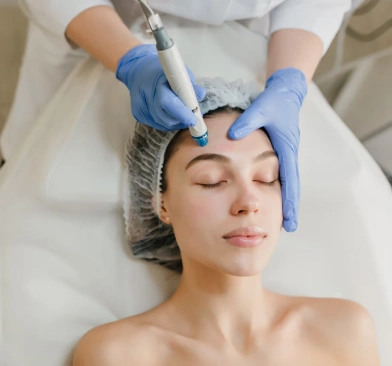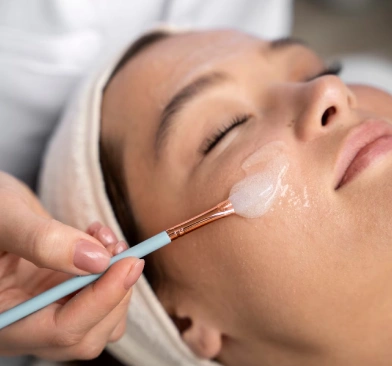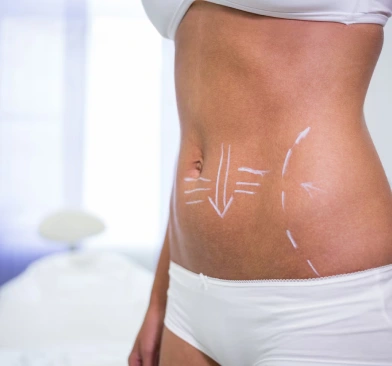Are Chemical Peels Safe for Acne-Prone Skin? Dermatologist Answers
Many people experience frequent acne breakouts and associated issues. Their acne-prone skin type requires proper care with a gentle, consistent, dermatologist-recommended skincare routine to maintain healthy, appealing skin. Knowing that chemical peel treatment in Gurgaon is a popular skincare treatment, most people with acne-prone skin ask this question out of curiosity: Will chemical peel be safe and a worthy add-on to my skincare routine?
For expert insights on chemical peel treatment for acne-prone skin, keep reading this blog.
What are Chemical Peels?
Chemical peels are dermatologist-prescribed acid solutions, clinically proven best for non-invasive skin resurfacing. These are cosmetic solutions for a variety of mild to severe skin problems, including acne and its scars, enlarged pores, post-inflammatory hyperpigmentation, and skin textural/tone irregularities.
How Chemical Peels Work for Acne-Prone Skin?
Chemical peels, which are acid solutions, work by causing controlled skin injury when applied to cleansed, acne-prone skin. They help remove the damaged and pigmented top layers of the skin. Specifically, the skin cell debris and extra sebum that clog the pores to cause acne flare-ups, and extra melanin that causes post-acne hyperpigmentation. Furthermore, the injury stimulates cellular regeneration and the fresh collagen and elastin production to encourage the growth of clearer, smoother, refreshing, and radiant skin. Even the acne scars get diminished.
The depth of exfoliation that chemical peels bring depends on the type/strength of the peel used. Based on the level of exfoliation, there are following types of chemical peel:
- Superficial/mild peels- These are mild strength acids like glycolic acid or lactic acid that act only on the superficial skin.
- Medium peels- These are the medium-strength acids like salicylic acid or trichloroacetic acid that act only up to the depth of the upper dermis.
Are Chemical Peels Safe and Effective for Acne-Prone Skin?
Yes. Chemical peels, when appropriately used by the right dermatologist, can exfoliate the skin layers to unclog the pores, reduce sebum production, and improve acne and its scarring/discoloration. It’s strictly advised to see a qualified dermatologist to get one's own skin type and concern assessed and to know which type of chemical peel course to go ahead with, and ensure safe and effective treatment.
How to Ensure the Success of Chemical Peel Treatment for Acne-Prone Skin?
To achieve the desired effects of chemical peel treatment for acne-prone skin, it is essential to choose the right provider who is conveniently located near your place of living or work. Dr. Niti Gaur at Citrine Clinic can be the best choice. She is a certified, skilled, and experienced dermatologist who can help determine the safe and effective type of chemical peel for acne-prone skin.
Besides, the patient must strictly adhere to the guidelines provided by the practitioner.
Pre-Chemical Peel Instructions
- Avoid the use of non-steroidal anti-inflammatory drugs or any medication that thins the blood
- Stay away from direct UV exposure. Also, avoid the use of tanning beds or anything that leaves the skin irritated
- Lead a healthy routine, including enough water intake, adequate rest, managed stress, and a nutritious diet
- Refrain from the use of reti-noids, alpha or beta hydroxy acids, or any aggressive skincare products for 1-2 weeks. Also, avoid hair removal.
Post-Chemical Care Instructions
- Do not pick, rub, scratch, or touch the treated area for a minimum of 2 weeks
- Follow the precise care guidelines provided by the dermatologist as per the peel chosen
- Keep treated skin well-moisturised and hydrated, also protected from the harmful UV rays of the sun
- Practice a dermatologist-recommended, gentle skincare routine. Use only fragrance-free, non-comedogenic products
- Do not engage in strenuous activities or go to saunas, steam rooms, or swimming pools, as these activities can irritate the treated skin
- Attend all follow-up appointments. If any complications arise during the healing process, contact a dermatologist immediately.
Benefits of Choosing Chemical Peels for Acne-Prone Skin
Chemical peels are most recommended for acne-prone skin as they are minimally invasive and capable of:
- Unclogging pores- The chemical peels help eliminate the dead skin cells that clog the pores and stop further acne breakouts.
- Reducing sebum production- The chemical peels can regulate the production of natural skin oil (sebum), which, if in excess, can cause acne breakouts.
- Improving skin texture- The chemical peels provide overall skin rejuvenation by promoting skin regeneration and collagen growth. They make the skin smoother, brighter, and clearer.
- Fading acne marks and scars- The chemical peels can diminish the appearance of red/brown spots and scars that are left behind by acne by reducing the inflammation and melanin content while boosting the collagen and elastin production.
FAQs on Chemical Peel Treatment
Which chemical peel is the best for acne-prone skin?
Many chemical peels can work for acne-prone skin, like glycolic acid, lactic acid, salicylic acid, mandelic acid, trichloroacetic acid, kojic acid, and Jessner’s peel. Schedule a consultation with Dr. Niti Gaur to know which peel will best suit your skin type and condition.
What are the side effects of using chemical peels on acne-prone skin?
The usually expected minor and short-lived side effects of using chemical peels for acne-prone skin include swelling, redness, flaking/peeling, tightness, dryness, and increased sensitivity to UV damage from the sun.
Who should not go for chemical peels for acne-prone skin?
Chemical peels are contraindicated for individuals who have recently had radiation therapy or surgery; pregnant/breastfeeding women; and people having active skin infections, eczema, rosacea, photosensitivity, compromised immune system, or keloid/hypertrophic scars.
Does chemical peel treatment hurt on acne-prone skin?
There is just a mild tingling or numbing sensation till the chemical peel is active. In a few minutes, a neutralising solution is applied to stop the peel activity and ensure no major harm to the skin.
Which dermatologist should I choose for chemical peel treatment?
Save the name of Dr. Niti Gaur, a top-rated dermatologist, to receive the safest and most effective chemical peel treatment in Gurgaon. She is available for consultation at the Citrine Clinic. Schedule your consultation now.
SCO- 19, Huda Market Road, Sector 15 Part 2,
Market Gurugram, Haryana 122001, India.
Clinic Timing: Monday - Sunday: 9:00 AM - 8:00 PM
Phone: +91-9868649805 | +91-9810652808 | +91-8042302681,
Email: info@citrineclinic.com



